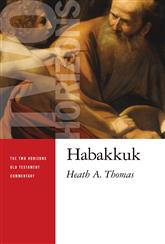The next generation up, those born between about 1995 and 2012-ish are just now graduating college, so the analysis in the recent volume, iGen, by Jean M. Twenge, has potential to be helpful for pastors, parents, employers, and professors. Every generation is shaped by the environment it was raised and it can be helpful to discover both the influences that formed them and, statistically speaking, the tendencies we should expect to see from them.
The generation that is now reaching what used to be known as the age of adulthood is unique because they have been raised in a world where smartphones are prevalent. Thus, in this constantly evolving experiment we are running on our children, they are the first to have been immersed in social media, constant electronic contact, and the unique influences of having a supercomputer in their pockets all the time. This is a generation—even more so than the Millennials—that will likely never remember when books were the predominate means of research and dissemination of knowledge.
Twenge’s book is, on the whole, much more explanatory than argumentative. She is a social scientist attempting to explain trends without drawing judgment about what is good or bad. The only times she is overwhelmingly positive about the generation is when she discusses their narrow belief that absolute sexual libertarianism is a basic human right and that dissent to radical sexual revisionism are bigoted and must be stamped out. She seems delighted that the generation has little grasp of human history and looks forward to their presumed effect in rooting out religious orthodoxy from society. The only times she is negative is when discussing the effects that technology has had on the mental health of these young people.
Beneath the calm exterior of her writing, there are some trends that should concern parents and, hopefully, cause society to begin to question what we are doing to our children and work to ameliorate some of the damage thoughtless use of technology has brought about. The danger in using research like this is that it describes averages and not the individuals before us. However, as we look at a mass of kids in, say, youth group, or a generation being hired into our workplace, it can be helpful. At the same time, we must keep in mind that the average often does not describe the person in front of us.
On the front of good news, iGen or Generation Z appears to have more realistic views of work than Millennials. As I have witnessed for years, the Millennial generation tended to have higher expectations for flexibility from their employer and lower tolerance for expectations of cooperation, adherence to company policy, and production. According to the data, iGen appears to expect work to be hard and make demands that they will sometimes have to adapt to. Accompanying this trend, iGen appears to have better self-control of finances than the previous two named generations, with an emphasis on savings and modest purchases rather than extravagant pursuit of luxury. Those in iGen generally look for purchases by which they can build their identity, that show they are unique, rather than that they have wealth. Also in the way of positives, iGen tends to me more politically independent. Given the cancer that exists in both major parties, this bodes well for a shift in the political ecosystem. It also helps explain why a large number of iGen voters pulled the lever for Donald Trump—a political outsider—in the 2016 election. They supported independent, socialist candidate Bernie Sanders and, when he was out of the running, either stayed home or supported the other disruptor of the political status quo. We can question the results of their independence in that case, but in general it seems positive they aren’t accepting the poor political offerings we have.
There are also some items that are of critical concern for those who like civilization. Whatever the cause, this generation is highly focused on two competing concerns: atomistic individualism and safety. This is a generation that is getting fewer speeding tickets and getting pregnant less. Those things seem good, but the causes should give us cause for concern. According to Twenge’s analysis, iGen tends to get together less in person and be highly focused on minimizing risk. Girls aren’t getting pregnant as much because they aren’t having sex as much. They aren’t having sex as much because the app-dating ritual has reduced sex to an emotionless pleasure seeking ritual (highly attractive to young males) the outcome of which has been distorted by online pornography. In fact, online pornography is killing the “hook-up” culture because there is little need to actually go through the work of “Netflix and chill” when with a few clicks arousal and masturbation can be had without having to talk to anyone.
Less extra-marital and casual sex seems to be a positive, when considering concerns about STDs, single parent families, and cohesion of society. However, that trend is being achieved by a reversion away from human tendencies toward community and relationship. Twenge cites multiple studies and anecdotes that indicate members of iGen are avoiding even dating relationships until they feel they are absolutely secure financially. This is pushing the age of marriage into the 30s.
By pushing marriage later and later, we also see the rise of a generation that sees childhood extending through the 20s. That is a significant trend cultural commentators like Ben Sasse, Jonathan Haidt, and Twenge are all noting. Socialism is considered more favorable by young people in part because they have come to expect their parents to continue to support them well into what was once expected to be adulthood. Some social scientists claim this is a natural reaction to the rise in life-expectancy, but there are likely other contributors, as well.
iGen has been raised with comfort and safety as paramount concerns. We’ve shifted beyond helicopter parents to bulldozer parents. So, in many cases, iGen has been raised with almost no legitimate difficulties in their lives. In the attempt to squash bullying (a good move in general), society has classified every negative interaction as abuse, thus there is a generation that has rarely had to deal with conflict resolution and working with jerks.
One of the areas Twenge raises concern is in the way that iGen tends to deal with things they don’t like. They tend to seek out and expect “safe spaces”—because emotional safety is of significant concern—and believe that the feelings of individuals trump the rights of others. But they tend to rely on third parties to enforce their whims. Thus, many universities have Stasi-like reporting systems where students can anonymously report professors that offend them. And, as with the highly publicized events at the University of Missouri a few years ago, this generation will demand apologies and destruction of people that are not responsible for things they have determined to be offensive. The reality of the president resigning because non-students off-campus yelled racial epithets at students should concern those who like civilization.
One of the results of this Stasi-like mentality of reporting and attempting to destroy anyone and anything they find offensive through mob forces is the call out culture. Twenge does not cover this in detail, but it is one of the ways that social media has damaged this generation. What she does cover is the fact that iGen tends to be highly engaged on social media in harassing those that disagree with them, but does much less to engage in actual solutions to problems. They raise awareness well, but typically rely on others to enforce their demands. This protects them from real conflict, encountering opposing views honestly discussed, and considering compromise.
There are multiple causes for concern from this generation. Twenge tends to stay upbeat and positive, with a conclusion that seems altogether too perky for the book as a whole.
The most significant contribution of this book is to begin to show readers what smartphones and social media are doing to us as a society and begin to ask realistic questions about a) whether those things are good and b) how we can gain some of the benefits of technology without the negatives. Twenge offers some suggestions about limiting access to social media for teens and pre-teens and limiting electronic devices for young children. The majority of the solution, however, is left to the readers to develop.
Twenge’s book shows that, with respect of traditional forms of humanity, iGen has been damaged by smartphones and social media. Just as it was the adults who handed out participation trophies to Millennials, it has been the adults who have overprotected iGen and given them largely unfettered access to the internet. They didn’t start the fire, so we ought to seek to help them mature, not berate them for our failures.
Society, and particularly the church, need to ask how we will help them grow and mature, develop biblical virtue, and prevent future generations from being harmed by thoughtless adoption of technology.





















Reading your Bible is a battle. There’s a reason why Paul lists Scripture as the sword of the Spirit in his discussion of the armor of God (Eph. 6:17). More even than that, Scripture reveals God’s character and is, thus, central to worshiping well (Psalm 119). That’s why reading the Bible is a battle.